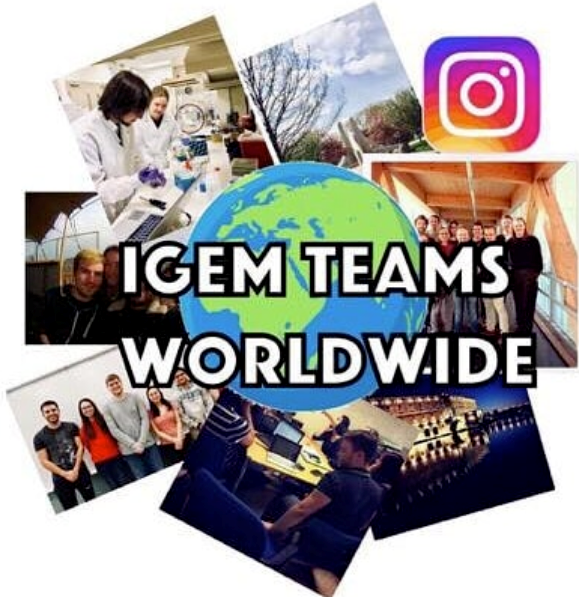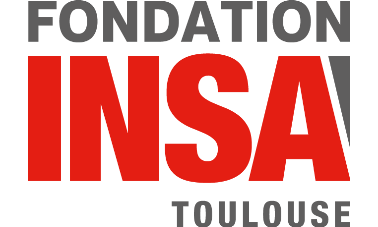COLLABORATIONS
Aalto-Helsinki iGEM Team

We met members of the Aalto-Helsinki team at the European meetup in Munich and after discussing both of our project, we realised that a collaboration was possible. We talked on Skype and realised we had the same construction with our carbohydrates binding module but we were not experimenting on the same material: they were using cellulose nanofibrils from birch and we were using bacterial cellulose produced by Gluconacetobacter hansenii.
We decided to realise our CBM affinity tests on both materials. Unfortunately, we didn’t have time to test each other's material but it was a great opportunity to compare our projects.
Bordeaux iGEM Team


We met the Bordeaux iGEM team at both the french and european meetup. They try to find a way to substitute an alternative segment of the traditional petrobased chemistry by a new green bio-based chemistry. We visited them in Bordeaux from the 24th to the 26th of August and gave them 5g of bacterial cellulose so they could try to test their project on our material.
Human Practices Collaborations

We skyped the ULaval iGEM team during the summer to talk about collaborations. It quickly appeared that a scientific collaboration was going to be difficult because our projects were not connected but the idea of collaborating on human practices seemed great.
Both of teams have advisors who are specialists in ethic so we thought about reviewing each other’s HP plans. We found the idea of comparing the point of views of Europeans and North Americans interesting. To complete our study, we asked the National University of Singapore (NUS) iGEM team to join us, so we could have an asian point of view.
iGEM France
Thanks to Grenoble’s initiative, we were honoured to take place at the iGEM France journey. The association created permited to french teams to help each other and exchange on their difficulties.
We had meetings every month by skype to talk about the role of the association and define together projects to strengthen the link between the French teams. This experience allowed us to meet the teams from Montpellier and Laval with whom we have undertaken some great collaborations
Meetups
4th Parisian Meetup

On the 4th of July, we gathered with all the french iGEM teams to participate in the 4th parisian meetup organised by the Pasteur Paris iGEM team.
It was the first time that we presented our project to others and we got the feedback of a jury composed of various professionals. To be given advices by the jury and the other iGEM team was interesting and very helpful to improve our presentation and our way to communicate about our project.
Seeing everyone’s projects and how they managed to progress gave us an overall idea of what was left to do and where we should put more efforts.
We also got the chance to participate in round tables about bioethics, which was very interesting.
European Meetup in Munich

On the 21st and 22nd of July, we attended the European Meetup in Munich.
The different talks were very interesting and we had the chance to ask Katrin Lang, one of the speaker, for advice about some worries we had with our part involving unnatural amino acids.
The poster session was a great opportunity to practice introducing our project to the other teams. The feedbacks and tips we received from the other teams were very helpful to improve our poster for the oncoming events.
This meetup was also a good opportunity to talk about collaborations and to get to know each other by spending time with the other teams.
Montpellier iGEM Team


Their project is called Vagineering, it looks to solve horomonal contraceptive issues with a novel, non-hormonal method. The goal is to create a lasting contraceptive using only bacteria, which can later be reversed by engineering the strain with a kill-switch.
Montpellier participates for the first time in the iGEM competition! We wanted to help them get the Due to our geographical proximity we visited Montpellier at the beginning of our adventure. The opportunity for our two teams to build relationships and think together about a collaborative project. After several exchanges we decided to did a collaboration of reflection and design around LL-37 (a human antibiotic of the class of cathelicidines). Our ultimate goal was to clone LL-37 with an avi-tag to be biotinylated in pichia. The common interest of the two teams is to show that our Cerberus platform could be integrated into the Montpellier project and include a new functionalization of cellulose. We had a second project whose goal was to prove the biological activity of scygonadine on the vaginal flora as a concept of this part of the project was to design an anti toxic shock tampon.

Postcard Project

We took part in Düsseldorf’s project to exchange postcards about synthetic biology.
We decided to have a photo of our city, Toulouse, on the frond and a world map on the back with Toulouse marked by a dog’s paw to remind of our mascot and project, Cerberus.
iGEM Team Worldwide

This year we shared with other teams an instagram account that we created: igem.teams.wolrdwide. The team managing this account changed everyweek. Thus all participating teams were able to discover the daily life of the other teams and share theirs. We are very happy with the contribution of so many teams around the world to our project.
Surveys
We filled surveys for the following teams:
- Bielefeld: questionnaire about Dual Use and Dual Use Research of Concern
- Bordeaux: Human practices survey
- Duesseldorf: survey iGEM Duesseldorf 2018
- Lund: iGEM workplace evaluation
- Montpellier: project Vagineering
- Pasteur Paris: NeuronArch : prothèse, infection et interface… la biologie de synthèse au service du progrès
- Uppsala: iGEM work environment evaluation
No dogs were harmed over the course of this iGEM project.
The whole Toulouse INSA-UPS team wants to thank our sponsors, especially:









And many more. For futher information about our sponsors, please consult our Sponsors page.
The content provided on this website is the fruit of the work of the Toulouse INSA-UPS iGEM Team. As a deliverable for the iGEM Competition, it falls under the Creative Commons Attribution 4.0. Thus, all content on this wiki is available under the Creative Commons Attribution 4.0 license (or any later version). For futher information, please consult the official website of Creative Commons.
This website was designed with Bootstrap (4.1.3). Bootstrap is a front-end library of component for html, css and javascript. It relies on both Popper and jQuery. For further information, please consult the official website of Bootstrap.



